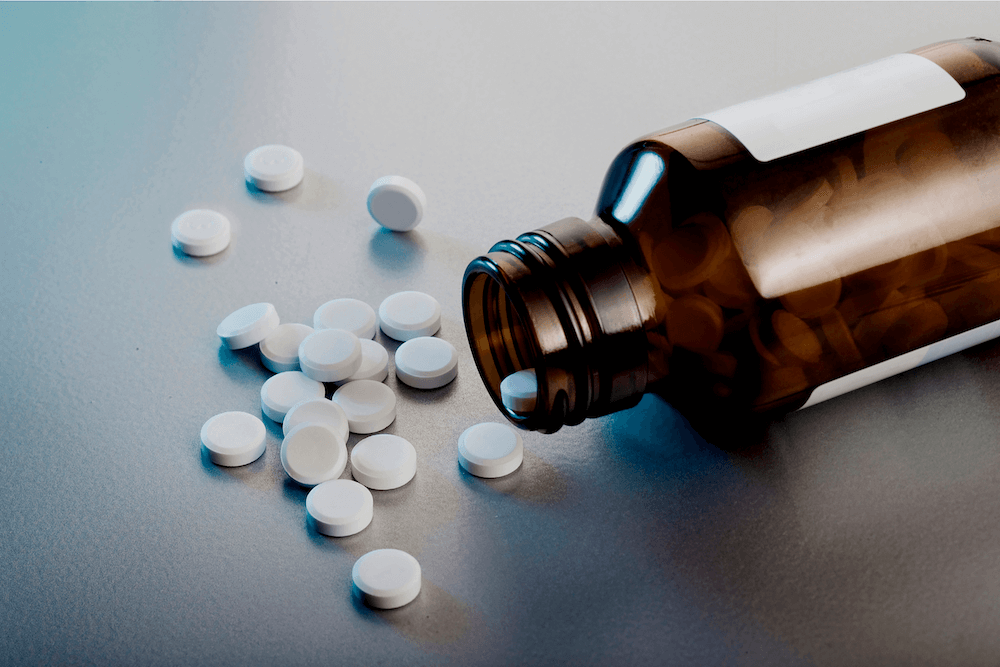Ambien Addiction – Treatment, Signs and Risks

Ambien was initially promoted as a safer alternative to benzodiazepines, with less risk for addiction or tolerance, but studies show that this has been underestimated.1 There are also serious health risks associated with long-term use of Ambien, including a potentially increased likelihood of respiratory issues, reflux, and infections.3, 4
Ambien works similarly to benzodiazepines but is slightly less likely to make you feel groggy the next day or experience dependence.1,5
Other sedative-hypnotics include:1
- Sonata.
- Lunesta.
- Xanax.
- Restoril.
- Valium.
- Ativan.
Ambien Risks and Addiction
Risks and side effects are always something to aware of with medications and other drugs. The potential for misuse, tolerance, physiological dependence, and withdrawal with Ambien is higher than initially thought.1,6 Side effects can include:3,6,7
- Aggression.
- Anxiety.
- Depression.
- Doing things you can’t remember.
- Drowsiness.
- Impaired driving.
- Lack of coordination.
- Nightmares.
- Slowed reaction time.
- Suicidal thoughts.
People with insomnia find it difficult to fall or stay asleep. If you have been using Ambien long-term and have tried to stop using the drug, your insomnia can worsen.1
Some additional long-term risks may include: worsening sleep apnea, reflux, chronic sinus infections, coughs, and laryngitis.6
Since you can develop tolerance to the effects of Ambien, you may find yourself taking larger doses to get the same results from the drug.1 Instead of feeling sleepy, some people report feeling euphoric when they take Ambien.8
If you are taking Ambien and have concerns, or if a loved one has an addiction to the drug, you should be aware of these potential signs of abuse:1,3,9
- Buying Ambien illegally.
- Combining it with other substances.
- Driving under the influence of Ambien.
- Experiencing withdrawal symptoms when trying to stop.
- Forging prescriptions.
- Taking it differently than prescribed.
- Sleeping through important events because of Ambien.
- Strong cravings.
- Trying to cut down or stop without success.
- Using Ambien every night.
- Visiting multiple doctors for prescriptions.
Ambien Withdrawal and Treatment
If you have been taking Ambien in high doses or for a long time, you may experience more severe withdrawal symptoms.6 Withdrawal may start within 48 hours of stopping or cutting back on Ambien use.6 Symptoms of withdrawal can include:1,2,3,6

- Agitation.
- Anxiety or panic attacks.
- Delirium.
- Disorientation.
- Hallucinations.
- Increased blood pressure, pulse, breathing rate, or body temperature.
- Sweating.
- Fatigue.
- Insomnia.
- Irritability.
- Nausea or vomiting.
- Restlessness.
- Seizures.
- Stomach cramps and abdominal discomfort.
- Tremors.
Medically managed withdrawal, also known as medical detox, is when you decrease the use of a substance in a facility while under the care of trained medical staff.10 Case report evidence supports there being a potential risk of withdrawal seizures. For this reason, medical management of Ambien withdrawal could be beneficial as this is potentially a life-threatening complication.3,6,10 Staff at a treatment or detox facility can provide medication and constant monitoring to ensure your safety.
After completing detox, you will begin treatment. You should discuss your options with your treatment team to decide what is right for you. Treatment options can include:11
- Inpatient treatment: This is a facility where you stay at and receive intensive group and individual treatment and therapy. For patients recovering from Ambien use, you will learn about addiction, relapse prevention, self-care, and how to manage insomnia without resorting to addictive sleep aids.
- Outpatient treatment: This is a facility where you attend several times a week for group and individual sessions, and a psychiatrist session monthly while living at home. This allows you to benefit from similar care as an inpatient setting, although it is relatively less intensive and less restrictive. Outpatient treatment is best for people who have completed inpatient treatment or have strong, supportive social networks at home.
Addiction Recovery
Recovery from an Ambien addiction means learning to live sober. Practicing techniques to manage symptoms of insomnia can help you stay away from sleeping pills. For someone with unmanaged insomnia, recovery will also involve learning about your diagnosis, what triggers your symptoms, and how to apply coping skills.
In the short-term, learning to live without Ambien can be difficult and frustrating. You may experience strong cravings for Ambien and struggle to sleep. Some skills that you may practice include:12
- Avoiding caffeine, exercise, or electronics before bed.
- Going to bed at the same time every night.
- Keeping your room cool and dark.
- Practicing meditation.
- Relaxation techniques.
- Using cognitive behavioral therapy (CBT).
It is important to make treatment a priority. After treatment many join 12-step programs or other mutual support groups. These are usually similar to group therapy in the sense that you can share your challenges and successes with peers who are also recovering from abusing substances.
AAC Substance Abuse Treatment Options
American Addiction Centers (AAC) is the leading addiction treatment provider in the U.S. Addition treatment at AAC facilities focuses on the patient and treats the whole person; from addiction to other co-occurring health issues.
Patients at AAC experience expert care from staff of medical professionals. Treatment is evidence-based, and each program is unique to the patient’s needs. If you or a loved one is abusing Ambien or has additional co-occurring disorders give us a call today at

